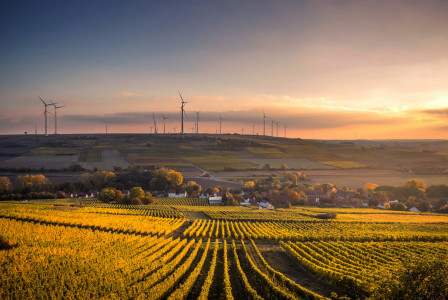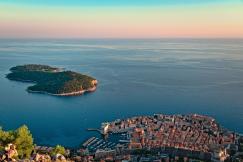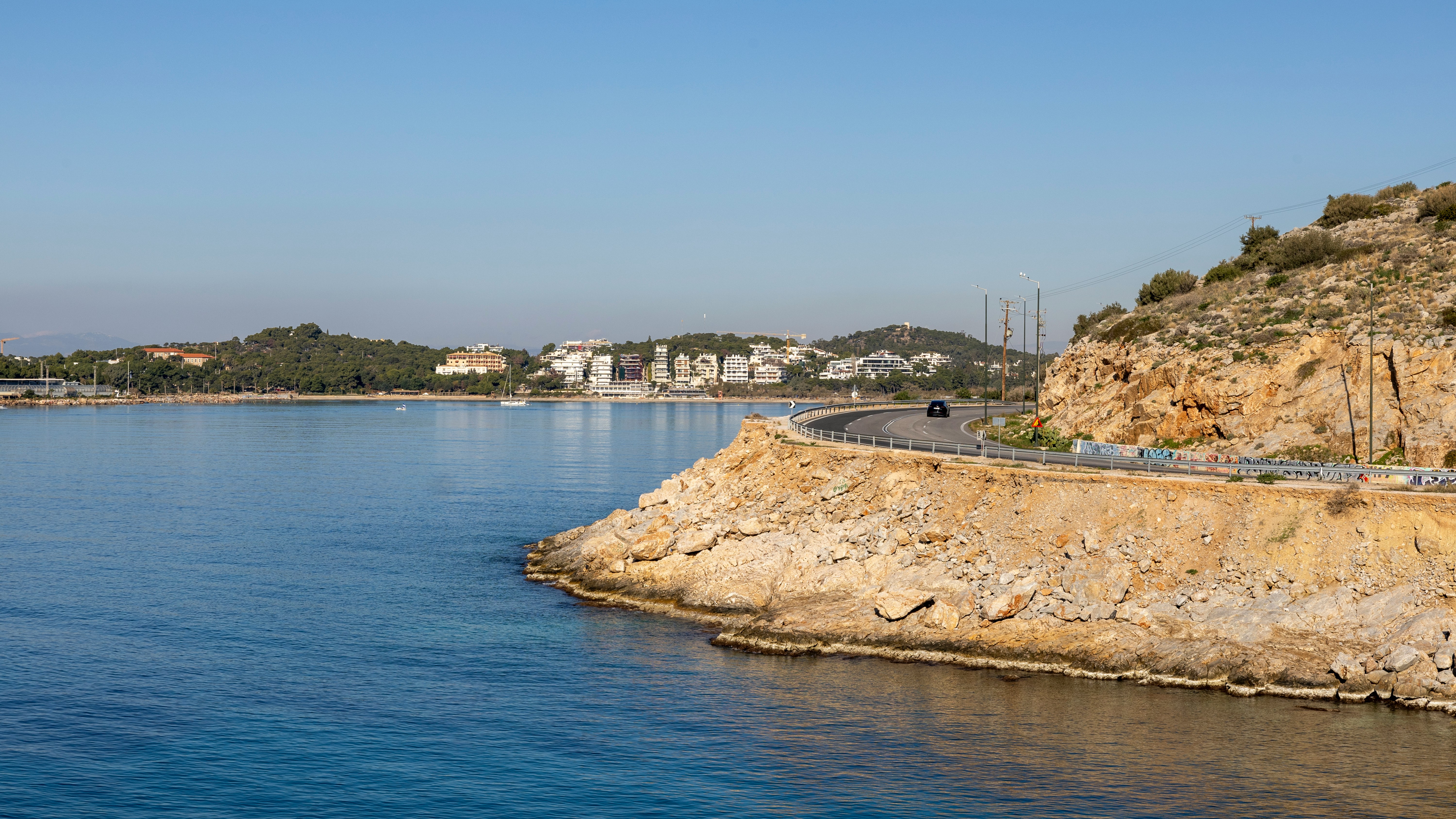Articles
25 September 2024
Sustainable Tourism - Adapting to Climate-Induced Holiday Trends
Articles
25 September 2024
Adventure tourism
Coastal, maritime and inland water tourism
Cultural tourism
+40 more
Login / create an account to be able to react
-
5966

As the impacts of climate change grows more evident, the tourism industry faces unprecedented challenges. Traditional holiday destinations are grappling with rising temperatures, unpredictable weather patterns, and environmental degradation, which are all reshaping travel behaviors. Coastal areas that once thrived during summer are increasingly vulnerable to extreme heat and rising sea levels, while ski resorts face dwindling snowfalls. These shifts not only disrupt tourism but also threaten the economic stability of many regions reliant on seasonal visitors. Consequently, both the industry and travelers are turning towards more sustainable tourism patterns, often better adapted to these climate-induced changes.
The growing awareness of environmental impact, coupled with the pressing need to preserve natural resources, has spurred a shift toward sustainable tourism. Modern travelers are seeking more eco-friendly options, prioritizing destinations that embrace environmental protection and sustainable practices. This shift is not only driven by consumer demand but is also a vital response to mitigating the effects of climate change on fragile ecosystems and communities.
The European Union (EU) plays a vital role in promoting this transition, recognizing tourism’s potential to drive sustainable growth. The EU’s commitment to sustainability includes significant support for businesses and destinations adapting to new climate realities. Through initiatives such as the Transition Pathway for Tourism, the EU encourages the sector to embrace greener practices, ensuring that tourism remains viable and resilient in the face of changing holiday trends.
Topics
Albania
Armenia
Austria
Belgium
Bosnia and Herzegovina
Bulgaria
Croatia
Cyprus
Czechia
Denmark
Estonia
EU-27
Finland
France
Georgia
Germany
Greece
Hungary
Iceland
Ireland
Italy
Kosovo
Latvia
Liechtenstein
Lithuania
Luxembourg
Malta
Moldova
Montenegro
Netherlands
North Macedonia
Norway
Poland
Portugal
Romania
Serbia
Slovakia
Slovenia
Spain
Sweden
Switzerland
Türkiye
Ukraine
Academic / Research and VET Institutions
Company with 250 or more employees
Consumer Organisations
Cultural and Heritage Organisations
Destination Management & Marketing Organisations
EU Institutions
Financial Institutions and Investors
Industry Associations and Chambers of Commerce
International Organisations
Local Authorities
Media / Journalist Organisations
National authorities
Networks and Federations / Confederations
NGOs / Non-profits
Regional Authorities
SMEs (a company with less than 250 employees)
Trade Unions
-
Specific types of tourism
-
-
Adventure tourism
-
Coastal, maritime and inland water tourism
-
Cultural tourism
-
Ecotourism
-
Education tourism
-
Festival tourism
-
Gastronomy tourism
-
Health and medical tourism
-
MICE tourism
-
Mountain tourism
-
Religious tourism
-
Rural tourism
-
Sports tourism
-
Urban/city tourism
-
Wellness tourism
-
-
Transition Pathway Strategic Areas
-
-
Best practices, peer learning and networking
-
R&I on climate-friendly tourism
-
-
Business activities
-
-
Activities of amusement parks and theme parks
-
Activities of associations and other organisations supporting tourism
-
Air passenger transport
-
Camping grounds, recreational vehicle parks and trailer parks
-
Events catering and other food services
-
Festivals, cultural and entertainment activities
-
Gardens and nature reserves activities
-
Holiday Housing / Apartments and other short stay accommodation
-
Hotel and similar accommodation
-
Mobile beverage services
-
Mobile food services
-
Museums
-
Operation of historical sites
-
Other
-
Other accommodation
-
Other amusement and recreation activities
-
Other food and beverage services
-
Other holiday reservation services
-
Other tourism transportation activities
-
Rail Passenger transport
-
Recreational and sport activities
-
Restaurants, cafes and bars (Food and Beverage serving activities)
-
Road passenger transport
-
Tour operator activities
-
Travel agency activities
-
Water (sea, coastal and inland) passenger transport
-
Share
Changing Holiday Patterns Due to Climate Change
Climate change is profoundly reshaping holiday patterns across Europe, particularly in its most popular tourism hotspots. Mediterranean regions, long favored for their warm, sunny weather, are now contending with scorching heat waves, prolonged droughts, and rising sea levels that threaten coastal infrastructure. Destinations such as Spain, Italy, and Greece, which rely heavily on summer tourism, are seeing the effects of extreme heat on both visitor numbers and local ecosystems. Similarly, European ski resorts are facing shorter winters and decreasing natural snowfall, putting winter tourism at risk and prompting resorts to turn to artificial snowmaking, a practice with its own environmental impacts.
As a result of these climatic shifts, travel preferences are evolving. Tourists are increasingly seeking destinations with more moderate climates, such as Northern and Central Europe, where temperatures remain comfortable year-round. Additionally, many are choosing to travel during off-peak season, reducing exposure to extreme weather while avoiding the crowds and costs of high season. This shift not only alleviates pressure on popular hotspots during peak times but also supports more sustainable travel patterns, spreading economic benefits throughout the year. Travelers are also beginning to explore lesser-known destinations that are less impacted by climate extremes, contributing to a more diversified tourism landscape.
Eco-tourism and nature-based tourism have emerged as major trends in response to these changes. Modern travelers are increasingly conscious of their environmental footprint and are drawn to sustainable travel options that minimize harm to ecosystems. Nature-based tourism, which emphasizes the conservation of biodiversity and cultural heritage, is particularly appealing, offering unique, environmentally friendly experiences in less developed regions. These emerging trends are reshaping the tourism industry, driving demand for eco-friendly accommodations, local experiences, and responsible travel practices that align with the global push for sustainability. The European Union actively promotes these shifts, supporting the development of sustainable tourism models that adapt to climate-induced challenges.
Role of Stakeholders in Shaping Sustainable Travel Trends
Tourism operators across Europe are increasingly embracing sustainability, offering eco-friendly services and promoting environmentally responsible travel. Hotels and resorts are adopting energy-saving measures, reducing waste, and earning eco-certifications for their green practices. Tour operators are crafting itineraries that highlight low-impact activities like cycling and wildlife conservation, all while offering carbon offset options. These efforts align with the EU’s commitment to sustainability, ensuring that tourism operators are integral to shaping a greener future.
Local communities and governments play a key role in fostering sustainable tourism. Collaborative efforts are essential, as they allow local communities to preserve their natural and cultural heritage while benefiting from tourism. In the Mediterranean, for example, partnerships between governments and tourism businesses have led to marine conservation programs that both protect the environment and boost tourism. The EU actively promotes these initiatives, encouraging stakeholder collaboration to create resilient, sustainable tourism models.
Travelers themselves are driving this shift by demanding more sustainable options. As consumer awareness of environmental impact grows, the demand for eco-certified destinations and experiences has surged. Many tourists now seek more meaningful, nature-based travel experiences that prioritize environmental and cultural respect. This growing demand pushes operators to adopt greener practices, creating a cycle of sustainability across the tourism sector.
Case Studies of Climate Adaptation in Tourism
Northern Europe, particularly Scandinavian countries, is leading the way in promoting sustainable tourism by focusing on year-round eco-friendly travel. Countries like Norway, Sweden, and Finland have leveraged their stunning natural landscapes and relative climate resilience to create tourism opportunities that minimize environmental impact. Rather than depending on short, intense tourist seasons, Scandinavia has diversified its offerings to include activities like hiking, cycling, and wildlife watching in summer, and sustainable winter tourism in regions with consistent snowfall. Many eco-friendly accommodations in these countries focus on reducing energy use, and some even rely entirely on renewable energy sources, aligning with broader EU sustainability goals. This approach not only extends the tourism season but also supports local economies without overburdening natural resources.
In Southern Europe, countries like Portugal and Greece are increasingly prioritizing sustainability to protect both their environment and tourism industries. Portugal has positioned itself as a leader in green tourism by promoting eco-friendly accommodations, many of which have earned certifications for their sustainability practices. The country has also shifted its marketing to encourage off-peak travel, reducing the pressure on popular areas during high season and spreading economic benefits throughout the year. Greece, traditionally known for its summer tourism, is also embracing more sustainable travel models by promoting less crowded destinations and encouraging visitors to explore the country’s natural beauty outside the busy summer months. These strategies allow for a more balanced and environmentally responsible tourism industry that can withstand climate pressures.
The Canary Islands offer a compelling example of how island destinations can adapt to climate change. Faced with rising temperatures and the increasing unpredictability of high-season tourism, the Canary Islands have focused on diversifying their tourism activities to reduce dependency on mass tourism. They’ve promoted nature-based experiences like hiking through volcanic landscapes, stargazing, and wildlife tours, attracting a different type of traveler—one interested in sustainable, low-impact tourism. In addition, many hotels and resorts on the islands have adopted renewable energy sources and energy-saving technologies to further reduce their environmental footprint. This holistic approach allows the Canary Islands to maintain their appeal as a year-round destination while balancing tourism with environmental protection, making the islands more resilient to climate-related challenges.
These case studies demonstrate that regions across Europe are successfully adapting to climate change by integrating sustainability into their tourism strategies, ensuring long-term viability while protecting the natural and cultural assets that make them unique.
Conclusion
In response to the growing impacts of climate change, the tourism industry is undergoing significant shifts. Traditional holiday patterns are evolving as rising temperatures and environmental challenges push travelers toward more climate-resilient destinations and off-peak seasons. Sustainable tourism has emerged as a critical solution, with eco-tourism and nature-based travel gaining popularity. Across Europe, both Northern and Southern regions, including the Canary Islands, are adapting through innovative approaches that balance tourism with environmental protection. The European Union plays a key role, supporting these transitions with sustainability initiatives aimed at making tourism more resilient and environmentally responsible.
However, continued effort is essential. Governments, tourism operators, local communities, and travelers must work together to ensure the success of these sustainable practices. By embracing greener travel options, promoting off-peak travel, and supporting renewable energy in the sector, stakeholders can help the tourism industry adapt to the challenges of climate change while preserving the beauty and cultural richness of Europe’s destinations for future generations.
Comments (0)
Related content
See also
From Guesswork to Governance: The EU’s Move Toward Smarter STR Data
- Categories
- Coastal, maritime and inland water tourism Cultural tourism Ecotourism +64 more
When Too Much Becomes Harmful: Rethinking Unbalanced Tourism in Europe
- Categories
- Coastal, maritime and inland water tourism Cultural tourism Ecotourism +64 more
A Year of Transformation: Key Insights from the EU Tourism Transition Pathway in 2025
- Categories
- Coastal, maritime and inland water tourism Cultural tourism Ecotourism +64 more














